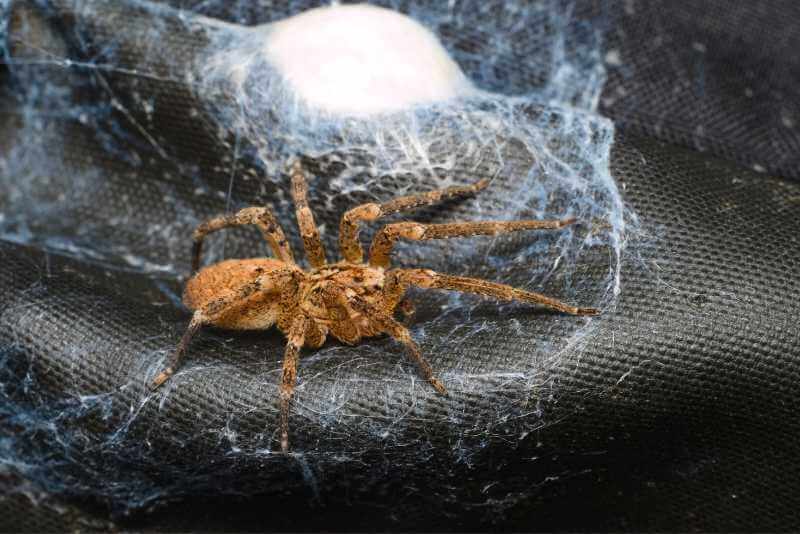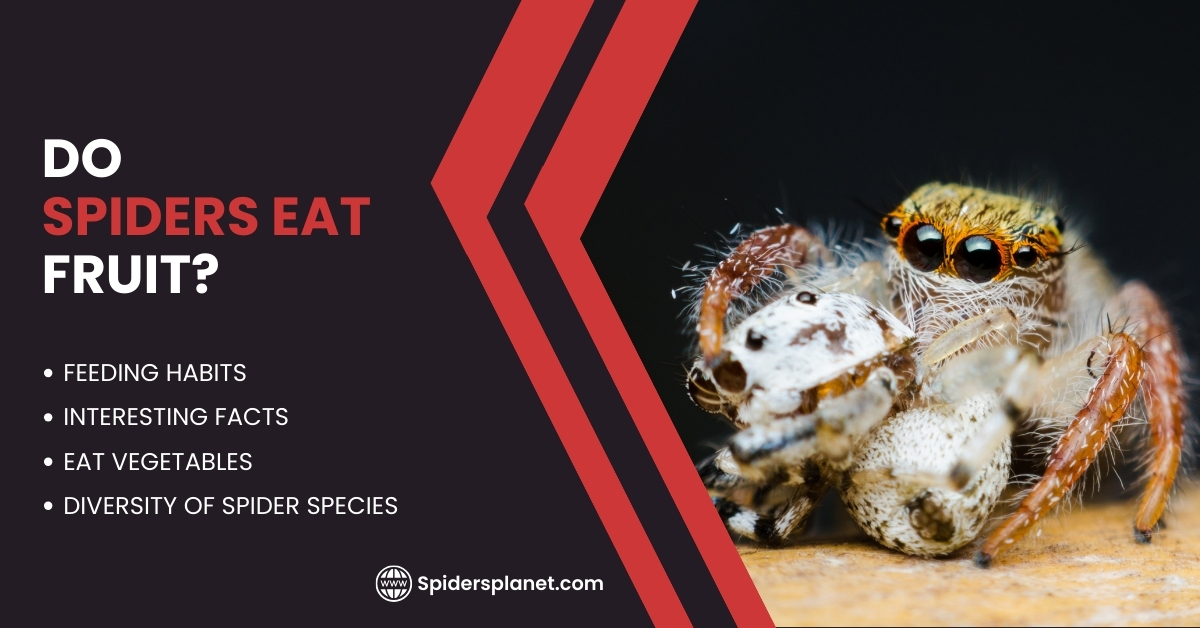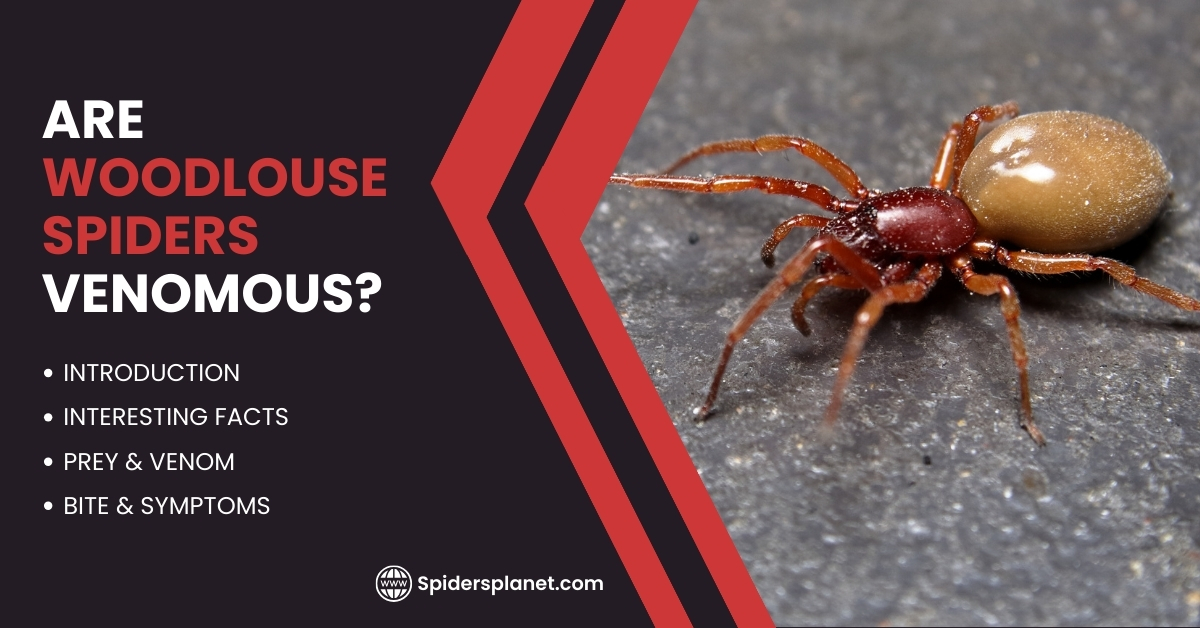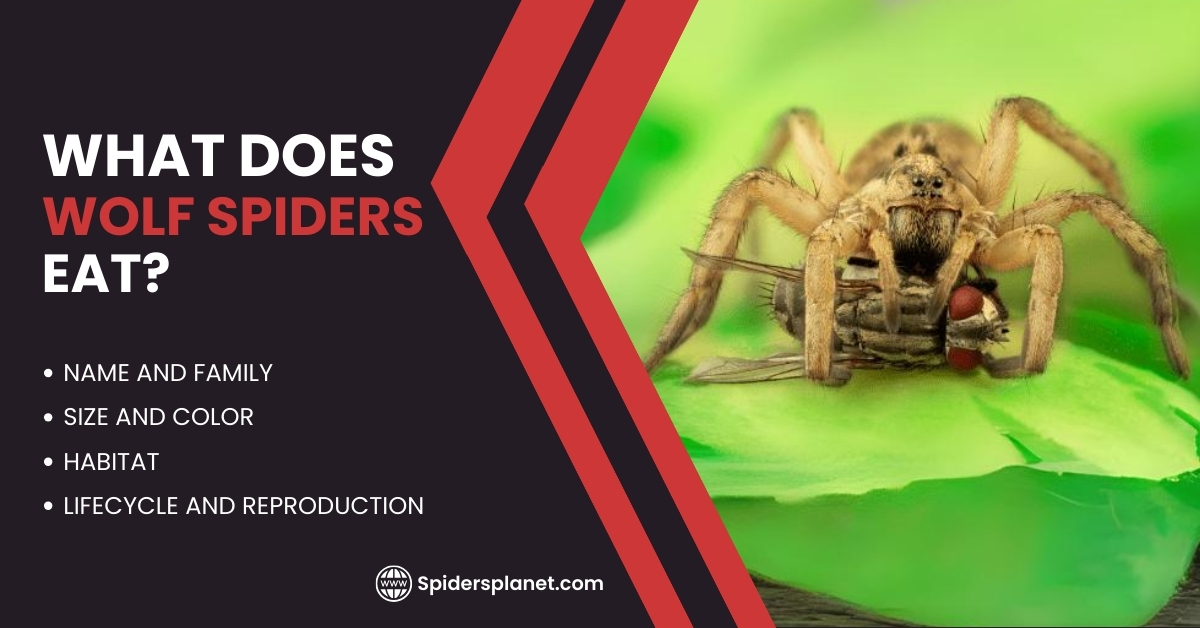Does Vinegar Kill Spiders? Dealing with spiders in your home can be a daunting task, and you might be wondering if household vinegar can help you remove and even kill spiders?
The short answer is Yes! vinegar can effectively kill spiders. In fact, vinegar contains an ingredient called “acetic acid” that can severely burn the spider’s exoskeleton resulting in death.
However, the question is… should you really use vinegar to kill spiders? And if you do, will this solution kill the spiders instantly or will they suffer?
You also need to think about the types of vinegar, and how much you should use if you need to mix it with water! “And” what the effects of spraying vinegar around your home can have!
Should You Use Vinegar To Kill Spiders?
Vinegar can be an effective, natural alternative to chemical pesticides when dealing with spiders in your home. But, should you use it? Well, while vinegar can be effective in killing spiders, it’s not necessarily the best method to use, and here’s why!
First off, using vinegar to kill spiders can be considered cruel because it causes the spider to suffer. The acidity of the vinegar can cause the spider’s exoskeleton to break down, leading to considerable discomfort and death.
Secondly, some spiders may take longer to die than others, and depending on the size of the spider and how much vinegar you use, this could take minutes or even hours for them to die.
What Kind Of Vinegar Kills Spiders
Most types of vinegar can repel spiders because they contain acetic acid, a substance that spiders dislike. To give you an idea of the types of vinegar that kills spiders here’s a list below:
- White Vinegar: The most common type of vinegar used for this purpose is white vinegar! It’s cheap, easy to find, and has a high acetic acid content.
- Apple Cider Vinegar: While not as effective as white vinegar, apple cider vinegar can still be used to deter spiders.
- Red Wine Vinegar: Similar to apple cider vinegar in terms of efficacy. Red wind vinegar can definitely kill spiders. However, the downside is it can also stain furniture. Something to keep in mind!
- Balsamic Vinegar: Although it’s typically more expensive, balsamic vinegar can also be used if it’s all you have on hand.
Can Vinegar Kill Spiders Instantly?
Although Vinegar does indeed kill spiders effectively, it’s not always an instantaneous process! It’s also worth noting that vinegar might not be effective against all spider species, “but” it can help with many common household spiders.
You also need to keep in mind that different types of vinegar may have varying concentrations of acetic acid, so if you do use it, we recommend that you use it as an appropriate type of vinegar for your particular situation.
A weaker type of vinegar may not be strong enough to cause significant damage to the spider, which could result in the spider suffering needlessly for an extended period of time. So it needs to be strong enough to have a significant impact on the spider’s physiology.
Vinegar And Its Effect On Spider Eggs
So we know a strong enough vinegar can kill spiders “but” what about spider eggs? Well, although it’s tempting to think that using vinegar on spider eggs may produce the same results as it does on adult spiders, the reality is quite different.
Spider eggs are typically protected by a silken egg sac that is remarkably resilient. This sac is specifically designed to shield the developing spiderlings from harm, and it appears that the acidity of vinegar doesn’t always penetrate them effectively.
Unless you bathe the eggs in vinegar, which can be a problem considering spiders lay eggs in hard-to-get places, relying solely on vinegar might not do the trick.
Alternative methods, such as vacuuming up the egg sacs or utilizing specialized pesticides designed to target the eggs, may be more effective.

Are There Any Risks When Using Vinegar?
When it comes to using vinegar as a spider deterrent, there are a few risks that you should be aware of. While vinegar is a natural and non-toxic method for warding off spiders, it’s still important to handle it with care.
The acidic nature of vinegar may cause damage to certain surfaces or materials. For instance, using vinegar on wood surfaces or any materials that are sensitive to acidity may lead to discoloration or deterioration.
Therefore, it’s crucial to test a small inconspicuous area before applying vinegar to large surfaces to prevent damage. Another risk is the potential irritation to your eyes, skin, or respiratory system.
Though vinegar is considered safe, prolonged exposure can cause eye or skin irritation, especially if you have sensitive skin. When spraying vinegar, ensure proper ventilation and consider wearing gloves, protective eyewear, and a mask as a precaution.
If you have pets or small children, it’s vital to exercise caution when using vinegar to repel spiders. While it’s unlikely to be harmful in small quantities, ingestion of vinegar could cause stomach upset or other digestive problems.
Make sure to keep your vinegar-based spider repellent out of reach of children and pets to avoid accidents.
If you do go ahead and use vinegar just remember that it’s not an all-encompassing solution to deal with spider infestations. Although it can help repel and kill spiders to some extent, it may not eliminate all spiders in your home.
In cases of severe infestations, it’s recommended that you consult with a professional exterminator for more effective solutions.
Safety Precautions When Using Vinegar
When using vinegar to combat spiders, it’s essential to be aware of the safety precautions. To help you with this here is a list of some safety precautions to keep in mind when using vinegar to kill spiders:
- Protective Clothing: Wear protective clothing such as gloves and long-sleeved shirts to avoid direct contact with the vinegar.
- Spray Bottle: Use a spray bottle to apply the vinegar to the spider rather than pouring it directly onto the spider to avoid splashing and accidental exposure.
- Dilute The Vinegar: In some cases, you may need to dilute the vinegar with water to reduce the acidity and prevent damage to surfaces and materials.
- Children And Pets: Keep vinegar out of reach of children and pets, as ingesting vinegar can cause harm.
- Use With Caution: Use caution when spraying vinegar in areas with poor ventilation, as the fumes can be irritating to the eyes and respiratory system.
- Wash your hands: After using vinegar, remember to wash your hands thoroughly with soap and water to remove any residue and avoid accidental exposure to your eyes or mouth.
By taking these safety precautions into account, you can effectively and confidently use vinegar as a natural method to eliminate and repel spiders from your home.
Alternative Methods to Kill Spiders
If you’re not keen on using vinegar to keep spiders at bay, there are other effective methods you can try. Here are some alternative spider removal strategies that are both safe and efficient.
- Pest Control Utilizing a professional pest control service can help ensure your home remains spider-free. These experts employ proven techniques and treatments to keep spiders and other pests under control.
- Insecticides There are numerous chemical-based insecticides available on the market specifically designed for spider control. When using these products, always follow the manufacturer’s instructions and take the necessary precautions to protect yourself and your family.
- Spider Traps A simple yet effective method is using spider traps. These traps typically consist of a sticky surface that captures spiders as they walk across it. Place these traps in areas where you have noticed spider activity, such as corners and along baseboards.
- Citrus Peels Spiders are known to dislike the scent of citrus. Scatter fresh citrus peels around common spider entry points, such as windowsills and door frames, or rub surfaces with the peels to leave a citrus scent that will deter spiders from entering.
- Diatomaceous Earth Another spider deterrent option is diatomaceous earth (DE), a fine powder made from fossilized aquatic organisms. When a spider comes into contact with DE, the powder damages the spider’s exoskeleton, eventually causing it to dehydrate and die. Simply sprinkle DE in areas where spiders are commonly found.
Remember, each of these methods has its own advantages and drawbacks, so it’s important to choose the option that best suits your needs and preferences.
How To Remove A Spider Without Harming It?
While vinegar can be an effective method to kill spiders, you may prefer a more humane approach to remove them from your home. Here are a few techniques you can try:
1. Capture And Release
Find a cup or container that’s large enough to fit over the spider. Slowly approach the spider, and gently place the cup over it, trapping it inside.
Carefully slide a piece of stiff paper or cardboard under the cup, making sure not to harm the spider. With the spider safely inside, carry the cup outside and gently lift it to release the spider.
2. Utilize A Spider Catcher
There are various spider catchers available on the market, specifically designed to safely capture and release spiders without harming them. These devices typically have long handles and soft bristles, allowing you to reach the spider from a distance.
Gently approach the spider with the bristles, coaxing it into the bristles. Once it’s inside, carry the device outside and release the spider.
3. Encourage The Spider To Move
Sometimes, simply coaxing the spider to move on its own can be enough to encourage it to leave your home. Use a stick, a pencil, or any object with a long enough reach to gently poke or prod the spider, prompting it to move.
If it’s near a window or door, guide it towards the opening so it can find its way outside. Remember, spiders play essential roles in our ecosystem by controlling insect populations.
Removing them without harming them helps maintain the balance of our environment. So, next time you encounter a spider in your home, consider these non-lethal methods to remove it and allow it to continue its crucial work.
Conclusion
Remember, using vinegar to kill spiders is not always the best method and can be harmful to the spider and the environment. That’s why we recommended alternative methods that are effective and safe.



